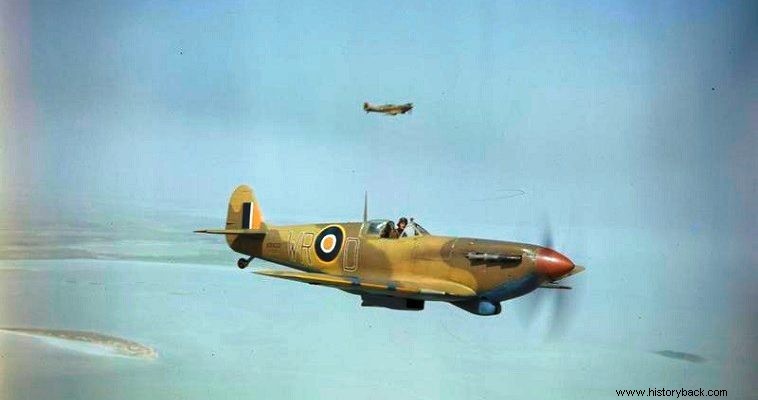
From the 1st World War to the flights of modern jet fighters they were all present. Unique stories of courage, heroism, sacrifice and dedication to the aviation concept are revealed by a voluntary effort of Greek researchers, which is looking for Greek pilots in the four parts of the world who have written their own page in the global aviation family. "Everything started from my love for Aviation and my study of it, through which I discovered many Greek names in foreign literature. This is how the whole effort of Greeks in Foreign Cockpits began.
"We have been researching all these stories for 21 years now through a particularly dynamic research", said Mr. Dimitris Vassilopoulos, head of the project and creator of the page www.greeks-in- foreign-cockpits.com online and on social media. "We are not professional researchers, we do not live from our efforts, but perhaps this is also the reason why something so good has come out, we do it with love and passion..." says Mr. Vassilopoulos. Together with his colleagues Kyriakos Paloulian and Giorgos Chalkiadopoulos, Mr. Vassilopoulos explains that their team has created a file in which hundreds of Greeks have now been recorded in the cockpits of foreign fighter jets.
"Now information is coming from everywhere. We are getting to the point where we don't know who to write about, who to refer to on the site and who in the books we are preparing", confesses the Greek researcher who explains that the effort has many challenges. "They needed and need, for example, communications with the archives of other countries such as the USA. We worked through family records and through the national records of Britain, Australia and Canada. We paid many times to a researcher, who took it upon himself to search these files, and in order to reduce costs, we did many things, such as pagination for example," he explains.
He notes that we had operators of Greek origin in all the wars. "From A' P.P. up to Korea, Vietnam, the "Gulf War". We have been in contact with many of the most modern ones, while several are already presented through our website" notes Mr. Vassilopoulos, with the research team periodically trying to transfer the history of individual fliers to paper.
Where do pilots of Greek origin come from
The USA, where the expatriate population is huge, had the most pilots with Greek roots in all previous decades. In the second year come Britain, Australia and Canada. But how Greek do the aces of the ethers "feel"?
"What has impressed me the most is how proud these pilots were of their Greek origin. If they were… Greeks? But, they felt more Greek even than us...!", answers Mr. Vassilopoulos. "They may have flown, for example, with the American air force, but inside they had a very strong feeling of the Greek conscience. Too many of them even drew either drawings or words that indicated their Greek origin", he says. "Spyros Karavidas had a bird on his plane that shouted "Air", the American Diamond Mitchell wrote "The Flying Greek" on the plane, there are many examples...", he adds.
After 21 years of work extensive capital has been written in the books for 25 to 30 pilots, another 50 have been researched for the purposes of the website but to a lesser extent, and basic information has been recorded for at least 700 more people. "Every three to four years we publish a large book with bibliographies, drawings, paintings. Until now, we have mainly focused on the B'PP period", explains the researcher.
The emotion and pride of the familiar
"Most relatives feel emotional when they learn that we are writing to them from Greece. Especially with regard to those who fought in World War II... It's an incredible amount they strongly maintain the Greek national consciousness alongside the American one", explains Mr. Vassilopoulos, who also describes moments that have been etched in his memory. "We experienced many emotions. I particularly remember Robert Vrilakas, a US Air Force pilot who was originally from Crete, and he motivated me to continue research and not get discouraged if I encountered obstacles. In fact, because he was flying from North Africa and Italy, he also flew on a mission over Athens and told me how moved he was to see Greece from above...", describes the Greek researcher.
Was it everyone's desire to fly over their home country? "Many of them flew in the Greek skies, especially those flying from Africa and Italy. Some like Frank Zavakos applied to be transferred to Greek Squadrons while one succeeded. We are also preparing a tribute for him on our website", he replies. As for the air ... saraki, it seems that the flight often "flowed" in the Greek blood.
"We had a case where the father was flying in Vietnam and the son was then in Afghanistan with the US Navy...another case where the father was a bomber gunner in the Air Force and the son was a helicopter gunner in Vietnam and many more such cases...something very touching..." answers Mr. Vassilopoulos. Among the many cases of Greek-origin pilots who wrote their own special history in aerial combat, researchers have singled out four faces of heroic...aces.
Four stories of heroes
Harry Coronios:He came from Kladas, a village near Sparta. He served as a P-47D operator in the 56thFG and had nicknamed his personal aircraft “The Greek”. On 8/10/1943 on a bomber escort mission he shot down one FW-190 and damaged another. Killed on 17/11/1943 during a training flight due to icing on the control surfaces.
John Lolos:He came from Lagadia, in the Prefecture of Arcadia. He served in the 348thFG flying P-47Ds. During training he had an accident with P-47C 41-6083 when he landed it forgetting to lower the landing gear. Harry Coronios had also caused an accident with the same aircraft a month earlier at another airport. Lolos fought on the Southwest Pacific front and earned the title of ace by achieving 5 kills.
Spiros Karavedas:He came from Varvasaina, Ilia Prefecture. He served in the 58thFG flying a P-47D which he had named "The Greek Guerilla" and which featured a cheerleader yelling "Air". Karavidas fought on the South-West Pacific front, flying countless strafing/bombing missions against Japanese ground targets.
John Agorastos Plagis:Born on 10 March 1919 in Hartley, Southern Rhodesia, he was the son of Greek immigrants. His father and his mother respectively came from the villages of Kontias and Platis of Lemnos. During WW2 he joined the RAF, trained as a Spitfire pilot and took part in the fierce air battles over Malta and later in continental Europe. He achieved 17 downings of German and Italian aircraft.
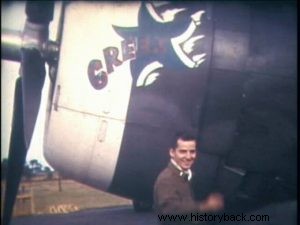
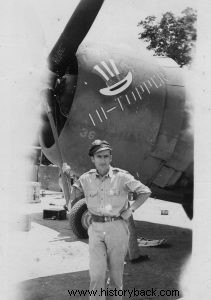
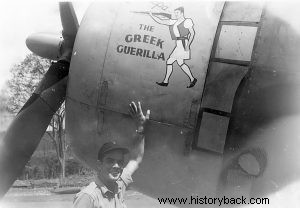
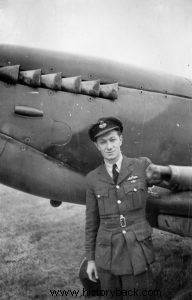




APE-ME
